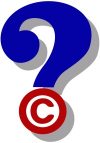Dear Doc:
The United States Constitution provides, in Article III, that, “The Judges, both of the supreme and inferior Courts, shall hold their Offices during good Behaviour, and shall, at stated Times, receive for their Services, a Compensation, which shall not be diminished during their Continuance in Office.” How, then, is it legal for Judge Pauline Newman of the Court of Appeals for the Federal Circuit to be suspended so that she cannot hear any more cases? What’s up with that?
Signed,
Dissent Lover
Dear DL:
For everyone else, here is a bit of the history behind this disaster. Pauline Newman (who has a Ph.D. in chemistry) was appointed to the Court of Appeals for the Federal Circuit (CAFC), which is the court that hears all appeals of patent cases, in 1984. She has a long history of being a dissenting voice on the Court, on the side of inventors, and advocating for clear standards for judging patent validity and infringement. She has been called “the Federal Circuit’s most prolific dissenter” and “the greatest ally to inventors with respect to [calling out] the ignorance of the CAFC, district courts, and at times even the Supreme Court.” (Daryl Lim), “I Dissent: The Federal Circuit’s “Great Dissenter”, Her Influence on the Patent Dialogue, and Why It Matters.”) As such, in recent years, she has written many more dissenting opinions than most of her colleagues. She is 96 years old.
Starting last year, the Chief Judge at the CAFC, Kimberly Moore, convened a “special committee” aimed at getting Judge Newman to step down from the bench. Judge Moore convened a panel of judges from the CAFC which began investigating charges that Judge Newman was physically and mentally unfit to continue to serve. Among the accusations was that Judge Newman had suffered a heart attack, that she was abusive to her staff, failed to issue opinions in a timely manner, and did less work than other judges. Judge Newman disputed all of this. See IPWatchdog.
Normally, when a situation like this arises, the matter is referred to judges from other courts who, it may be thought, are impartial about the issues. Judge Moore refused a request to transfer the matter. The committee demanded that Judge Newman be examined by doctors. She submitted reports from her physicians, but the committee insisted on doctors that it selected. Judge Newman’s supporters have analyzed her work and have pointed out that other judges of the CAFC have issued fewer opinions than she, and that, as a frequent dissenter, she often must wait for the majority to write its opinion, and only then may she respond with her own dissent, which, in turn, causes the author of the majority opinion to have to revise his or her document, and that this back and forth naturally takes more elapsed time than would a unanimous opinion of the Court.
Finally, Judge Newman has filed a lawsuit that claims that the entire process is unconstitutional because, among other things, the correct way to remove a federal judge is by impeachment.
The CAFC committee has now suspended Judge Newman from hearing any cases for a year. The reason that they did this is that her refusal to be examined by doctors chosen by the committee has been deemed a “refusal to cooperate” – which merits her de facto removal from her duties.
Judge Newman is a hero to many in the patent community for her courageous stands against the erosion of patentable subject matter and her advocacy for clear standards and law. She is therefore a thorn in the side of many of her fellow judges. To see her own words, you may be interested in a recent interview or this article about Judge Newman.
Why does this matter? If you’re an inventor or have an interest in patents, then having Judge Newman on the bench is, in the Doc’s opinion, one way to prevent further erosion of the patent system that has been going on for many years. Having actual scientists and engineers on the court is important because patent issues are often highly technical, and those without the training and knowledge in science and engineering often get things disastrously wrong (but then, judges are human, even those with training get it wrong, too.)
Have a legal question about IP law? The attorneys at LW&H are a pretty sharp bunch. Give them a call.
Until next month,
The “Doc”
–Lawrence A. Husick, Esq.


